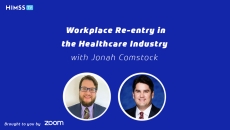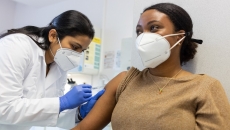Government & Policy
In this edition of "Workplace Re-Entry in the Healthcare Industry," healthcare attorney Aaron Maguregui discusses HIPAA and patient privacy in regard to telehealth and his projections for the post-COVID-19 world.
The expanded dataset could enable researchers to gain insights about "long COVID," says CEO of the landmark personalized medicine project.
The opt out process is ‘overly complicated’ said NHSX chief executive.
She comes to OCR from New York State's Department of Health, where she coordinated COVID-19 response and led social programs. Before that, she worked in the Obama administration on cybersecurity at DHS.
The inclusion of remote therapeutic monitoring codes in the 2022 Physician Fee Schedule suggests that transformations in digital health policy initiated in response to COVID-19 are beginning to have some permanence.
With more and more organizations requiring proof of COVID-19 vaccination, attention has to be paid to factors that could hinder wider uptake: access to technology, privacy concerns, social determinants of health and more.
The Office of Inspector General found that many states do not conduct monitoring specific to telemedicine – despite reporting concern about fraud, waste and abuse.
The agency's analysis suggests increases in interoperability and patient-provider communication, along with frequent use of mobile health apps.
A recent task force report offers some preliminary exploration of how definitions of EHI and designated record set might be operationalized going forward under the Cures Act Final Rule.
The app is being developed to simplify the entry process at hospitality venues.









